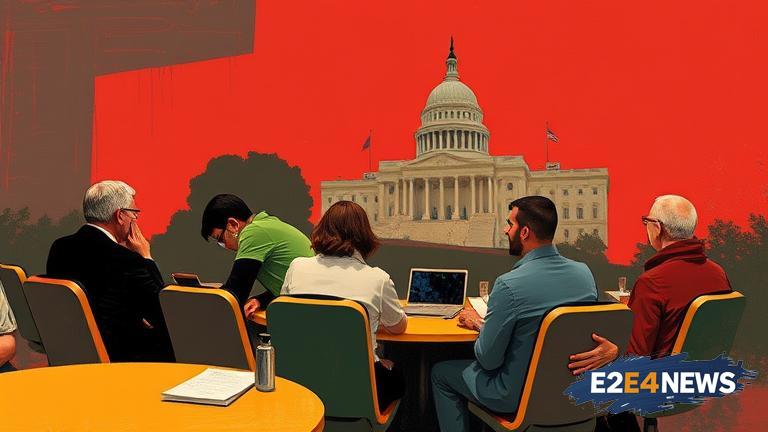A study conducted by a team of researchers has shed light on the reluctance of faculty members in Wisconsin to engage in discussions on politically charged topics. The study, which surveyed faculty members from various institutions across the state, found that a significant majority of respondents were hesitant to initiate discussions on contentious issues, such as politics, social justice, and identity. The researchers noted that this reluctance was largely driven by concerns about student reactions, with many faculty members expressing fears of being perceived as biased or provocative. Additionally, the study found that faculty members were also concerned about potential repercussions from their institutions, including disciplinary actions or damage to their professional reputations. The study’s findings have sparked concerns about the impact of this reluctance on the quality of education and the ability of students to engage in meaningful discussions about important issues. The researchers argue that the reluctance of faculty members to engage in discussions on politically charged topics can have a chilling effect on academic freedom and the exchange of ideas. Furthermore, the study suggests that this reluctance can also limit the ability of students to develop critical thinking skills and to engage in informed discussions about complex issues. The study’s authors note that the findings are consistent with a broader trend of increasing polarization and politicization in American society. They argue that the reluctance of faculty members to engage in discussions on politically charged topics is a symptom of a larger problem, in which the pursuit of knowledge and understanding is increasingly being supplanted by political ideology and dogma. The study’s findings have implications for educators, policymakers, and students, highlighting the need for a more nuanced and informed approach to discussing complex and contentious issues. The researchers recommend that institutions of higher education take steps to promote a culture of open and respectful dialogue, in which faculty members feel empowered to engage in discussions on a wide range of topics, including those that are politically charged. This can involve providing training and support for faculty members, as well as establishing clear guidelines and protocols for managing difficult discussions. The study’s authors also emphasize the importance of fostering a culture of critical thinking and intellectual curiosity, in which students are encouraged to engage with complex ideas and to develop their own perspectives and opinions. Ultimately, the study suggests that the ability of faculty members to engage in discussions on politically charged topics is essential to the health and vitality of American democracy, and that efforts to promote a culture of open and respectful dialogue are critical to the pursuit of knowledge and understanding. The study’s findings have been met with concern and interest from educators and policymakers, who recognize the importance of promoting a culture of intellectual freedom and critical thinking. As the debate over the role of politics in education continues to unfold, the study’s findings are likely to play an important role in shaping the conversation. The researchers note that the study’s findings are not unique to Wisconsin, and that similar trends are likely to be observed in other states and institutions. The study’s authors argue that the reluctance of faculty members to engage in discussions on politically charged topics is a national problem, one that requires a coordinated and sustained response from educators, policymakers, and students. By promoting a culture of open and respectful dialogue, and by fostering a culture of critical thinking and intellectual curiosity, it is possible to create a more informed and engaged citizenry, one that is better equipped to navigate the complexities of American democracy. The study’s findings have significant implications for the future of education, highlighting the need for a more nuanced and informed approach to discussing complex and contentious issues. As the study’s authors note, the pursuit of knowledge and understanding is essential to the health and vitality of American democracy, and efforts to promote a culture of intellectual freedom and critical thinking are critical to the future of the nation.





